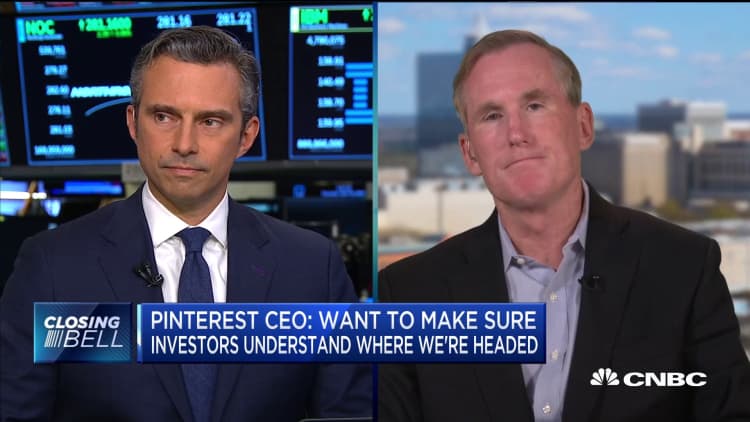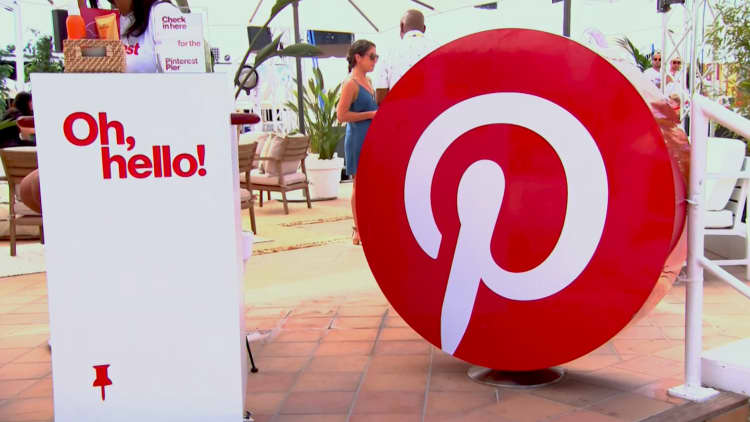Pinterest began its first day of trading Thursday at $23.75, up 25%.
The bump pushed Pinterest's market cap above $12 billion after it was initially priced at $19 per share, which had valued it at $10 billion. The stock continued to climb, rising 28.4% to trade at $24.40 per share with a market cap of nearly $13 billion.
That puts Pinterest's valuation well above the $12 billion at which it raised its latest round of funds in 2017.
The company, which debuted on the New York Stock Exchange under the ticker "PINS," originally said in a regulatory filing it would sell 75 million shares at a price range between $15 and $17 per share, which would have valued it as high as $9 billion.

The debut is the latest in what's shaping up to be a huge year for tech offerings, with Uber's IPO set for the coming weeks and Slack's direct listing reportedly on the horizon. Lyft was the first to hit the market in March, followed by software company PagerDuty last week and then Zoom, which began trading on Thursday just minutes before Pinterest.
Pinterest CEO Benjamin Silbermann tried to distinguish the company from other major tech firms such as Facebook and Twitter, saying in an interview on CNBC's "Squawk Alley" following the debut that "Pinterest isn't a social network."
"We really think about it as a utility," he said. "We're less focused on making it a place where you talk to your friends every day or you follow celebrities."
This distinction has helped Pinterest avoid becoming embroiled in some of the same controversies as other tech platforms. Recently, Pinterest restricted search results related to vaccinations once it became aware that it was becoming a vehicle for the spread of misinformation encouraging people to avoid vaccines.
"On anti-vaccination, our thought was, we're not the best place to get medical information and so it's not our responsibility to be serving things up, so we put a pause on that," Silbermann said. "And I think that's something we're enabled to do by the fact that we're an inspiration platform. We don't claim to be a free speech platform or a place that everyone can publish anything."
Silbermann said he is focused on expanding Pinterest's global presence and making it a place where businesses can reach their target audiences.
"The really cool thing about advertising on Pinterest is that people are there to get inspiration and do things, and that often means buying," Silbermann said. "So over the last couple years and for the foreseeable future we're going to work on bridging that gap between seeing something inspirational and finding a product from a retailer that you trust at a price point that makes sense for you."
Pinterest has a dual-class structure that concentrates voting power among its major stakeholders, including Silbermann and his co-founder, Evan Sharp. Silbermann said they opted for the structure to ensure "that we're running the company for the long-term."
"We thought that a good move was to make sure that the people who are operating the company, who have been long-term operators, control the destiny of the company," he said.
Watch: How Pinterest makes money by filling your feed with promoted pins







